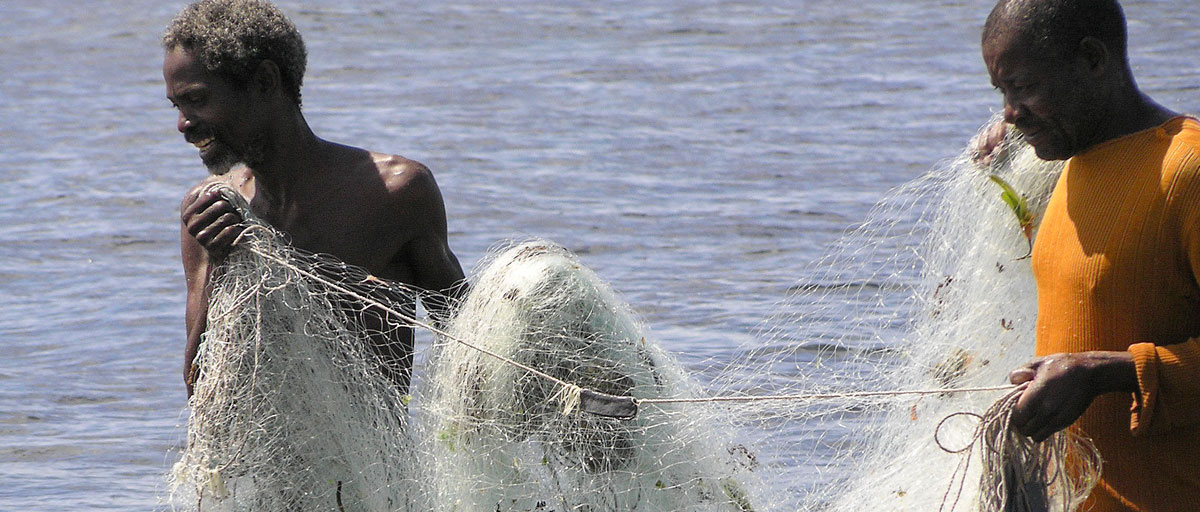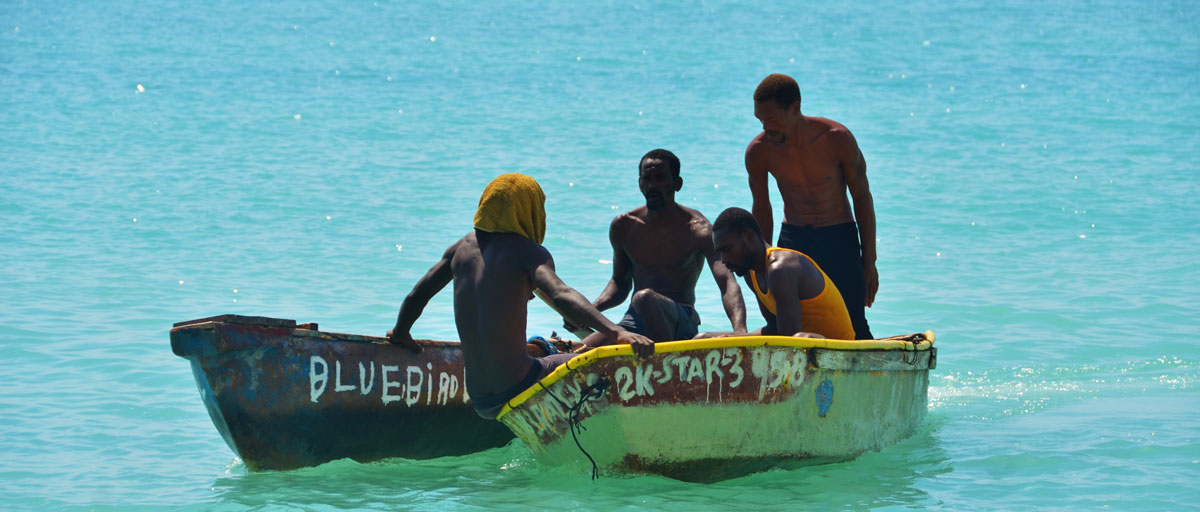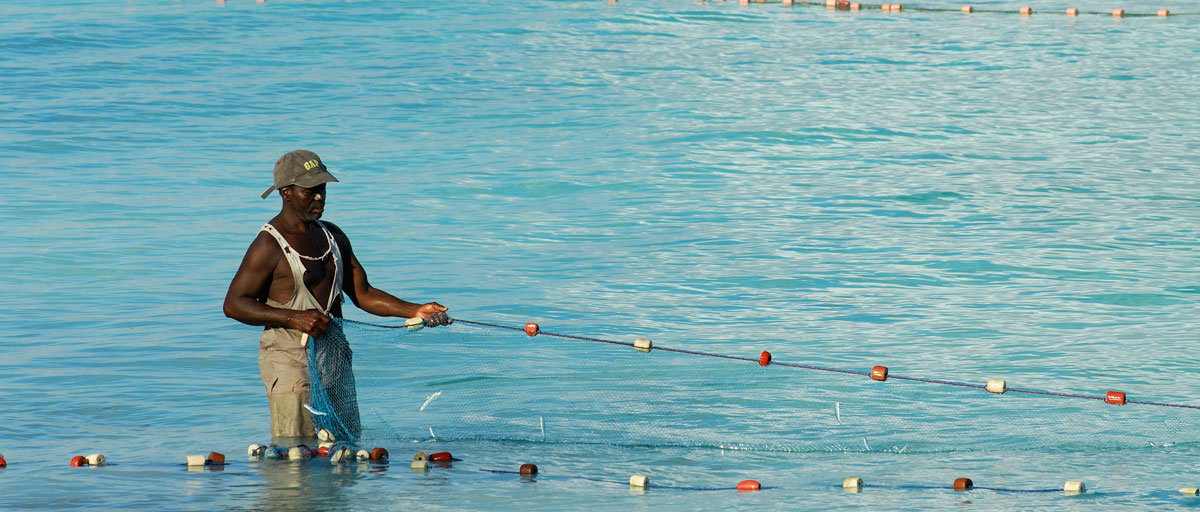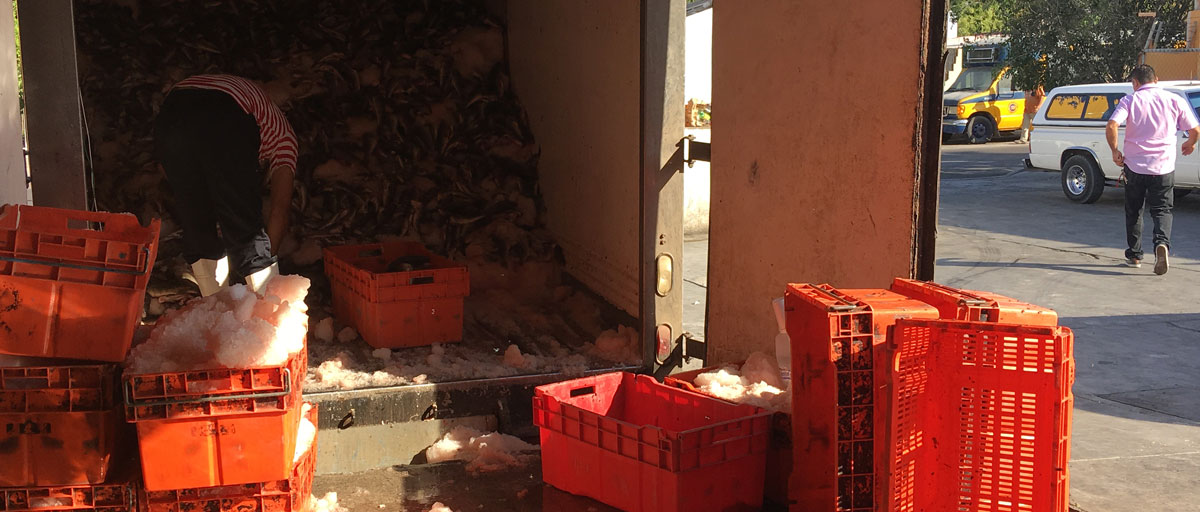
A new study demonstrates how fish buyers are embedded in various trade relationships with others and how their capacity to adapt is both constrained and enhanced by individuals' abilities to utilize their existing trade relationships. Photo: B. González-Mon
Bildtext får vara max två rader text. Hela texten ska högerjusteras om den bara ska innehålla fotobyline! Photo: B. Christensen/Azote
FISHING TRADE
It’s all about who you trade with
Fish buyers’ trade relationships with others strongly influences sustainability and their capacity to adapt to changes
- Study explores the complex patterns of trade relationships that exist between and among fish buyers and fishers in the context of small-scale fisheries
- The researchers use network theory to understand how fish buyers adapt to changes based on how they interact with other fish buyers and fishers
- The framework offers a deeper understanding of these trading relationships and the consequences they have on sustainability
Unless you fish yourself, the fish on your plate has changed many hands. Fish buyers procure the ocean riches from people who actually catch fish and sell it to an assortment of market players. This way fish buyers act as intermediaries and enjoy the power to influence how fish stocks are utilized and managed. It is reasonable then to expect that fish buyers’ capacity to respond to market and environmental changes ultimately affects the sustainability of small-scale fisheries.
This is the focus of a new research led by centre researcher Blanca Gonzalez-Mon. She collaborated with centre colleagues Örjan Bodin and Beatrice Crona (also affiliated to the Royal Swedish Academy of Sciences), and colleagues at Duke University.
Published in the journal Ecological Economics, Gonzalez-Mon and her team explore the variations in fish buyers’ adaptive capacity by looking at how fish buyers are embedded in trade networks.
Empirical data gathered from a finfish value chain in Mexico made it possible to apply an innovative bottom-up approach to come up the study’s findings.
By focusing on how fish buyers are embedded in various trade relationships with others, we are able to hypothesize how their capacity to adapt is both constrained and enhanced by individuals' abilities to utilize their existing trade relationships in their daily operations.
Blanca Gonzalez-Mon, lead author
Putting adaptive capacity into context
The study focuses on elements of adaptive capacity tied to the social-organisational structures of fish buyers, taking into account notions of power, resource control and resource access.
Trade relationships are defined as consistent relationships as opposed to one-off economic transactions. This way, the social and interpersonal relationships between fish buyers matter.
For their analysis, authors defined fish buyers’ adaptive capacity in relation to three levels:
a) fishers b) other fisher-buyers and c) fish buyers’ capacity to deal with short-term resource fluctuations.
Network theory helped to place fish buyers within these complex networks making it possible to see how fish buyers are ultimately linked to fish resources.
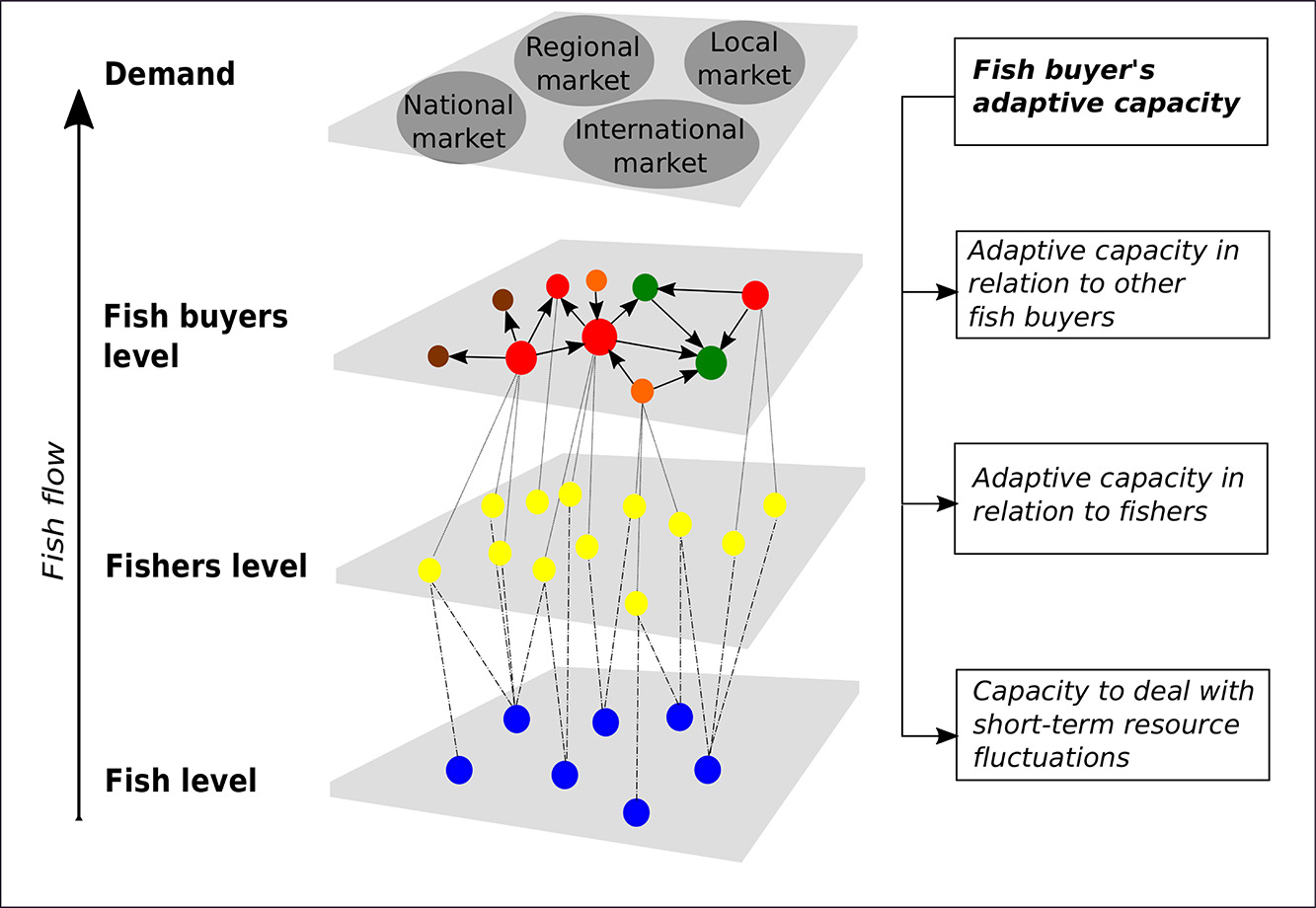
A shoal of fish buyers
Market interactions are complex, but Gonzalez-Mon and her colleagues were able to identify different and clearly distinguishable categories of fish buyers. Their categories are based on the kinds of interactions buyers have with fishers, the types of markets fish is sold in, and the types of relationships with other fish buyers.
For example, some fishers will exclusively sell to one fish-buyer in what appears to be a moral commitment between the fisher and the buyer. Here, the buyer often provides the resources necessary to fish (e.g. bait, fishing equipment) and at times also extends credit to the fisher. Such fish-buyers are typically called ‘patrons’. In some cases, fish buyers even hold permits and fishers work in accordance to their permit guidelines.
Further still, fish buyers can be classified based on if and to what extent they trade fish with other fish buyers, or the type of fish species they transact in (related to the type of markets they sell fish in). For example, some ‘patrons’ can be important traders in the city, both buying and selling fish to other fish buyers. At the same time, some fish buyers sell exclusively in local markets whereas others cater to tourist or international markets, and others deal with all types of fish species and markets.
Overarchingly, authors find that transactions are underpinned by stable inter-personal relationships between fishers and fish-buyers, and between different fish buyers.
Stability, trust and commitment describe many relationships where there is continuous communication between the two partners. This could include talks on what and how much fish is needed by the different partners.
Beatrice Crona, co-author
A sustainable catch
Given the pressure to increase the sustainability of fisheries, key governance organisations such as the UN Food and Agriculture Organization are promoting changes in supply chains. Some of these are meant to bypass intermediaries such as fish buyers so as to boost fisher income and encourage sustainable practices.
The researchers say it is vital to understand the diversity of fisher, fish-buyer and market relationships when designing such policy interventions for sustainable management. Their analytical framework can prove handy here.
“The network approach provides a common language to integrate insights from different disciplines investigating trade relationships and supply chains,” adds co-author Örjan Bodin.
The researchers conclude by outlining avenues that future research can build upon. For example, more insights will be needed to understand how different trade relationships influence actor’s behaviour and ultimately the post-harvesting structure and processes. Similarly, other dimensions of adaptive capacity can be studied as can the changing nature of fisher-fish buyer relationships in the form of longitudinal analyses. Doing this and more will go a long way in building a sustainable and resilient fisheries sector.
Methodology
This study follows a mixed-methods approach. It combines quantitative multi-level network analysis with qualitative analyses drawing on data gathered through surveys, interviews and participant observation. Authors first mapped the existing patterns of reoccurring fish exchange relationships in the studied SSF case, and by combining these with empirical data on the nature of such relationships they characterized different types of fish buyers. Second, they analysed each type of fish buyer in terms of their adaptive capacity following a network modelling framework.
González-Mon, B., Bodin, Ö., Crona, B., Nenadovic, M., Basurto, X. 2019. Small-scale fish buyers' trade networks reveal diverse actor types and differential adaptive capacities. Ecological Economics Volume 164, October 2019, 106338

